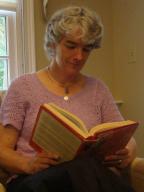
I initially started listening to the audiobook of The Immortial Life of Henrietta Lacks on my commute to work. But after just a couple of rides back and forth, I felt compelled to go to the Hatch Science Library to pick up the print copy so I could continue reading inside the house instead of sitting in my car in the driveway. Science writer, Rebecca Skloot, strikes a fine balance between exploring the biology behind using human cells for medical research and telling the story about one family’s search for information about their mother… through her cells. Henrietta Lacks was born in 1920. In the early 1950s, she developed cervical cancer and soon died, leaving behind five children. Her youngest, Deborah, was only a year old. As was common at the time, when tissue was removed from patients during surgery, some cells were preserved in culture for research. Henrietta’s cancerous cells became “immortal.” Her cells (known as HeLa) have now lived on longer than her mortal body did – even today they are multiplying and dividing.
Henrietta’s family was not aware of the existence of these cells until science writers began contacting them. Together with Skloot, Henrietta’s daughter Deborah embarks on a journey tracing the history of HeLa and the advances the cells have made to cancer research. The book examines the ethical issues surrounding medical research – who “owns” cells, who deserves credit for breakthroughs, and whether patients should be informed about how the medical community intends to use any discarded tissue. Even today, human cells may legally be taken from patients during surgery without any disclosure to the patient. The Immortal Life of Henrietta Lacks makes one wonder whether one’s own cells might be sitting in a petri dish in a laboratory somewhere.
This is a fascinating read that explores the themes of race, poverty, science and family.

